Research: Educational and Professional Background of AI Policymakers in the USA, UK, China, EU and russia
30. 06. 2023
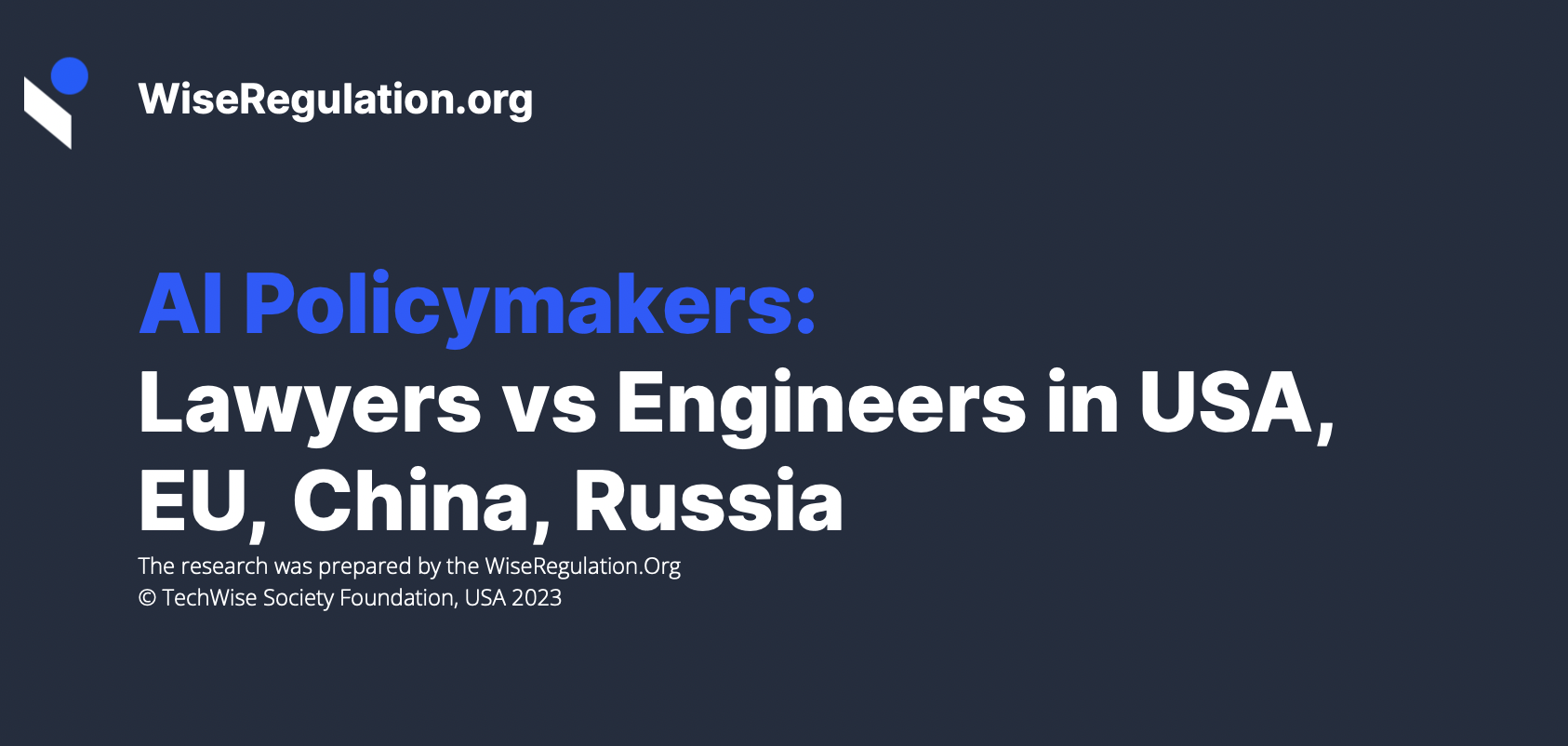
Research: Educational and professional background of AI policymakers in the USA, UK, China, EU and russia
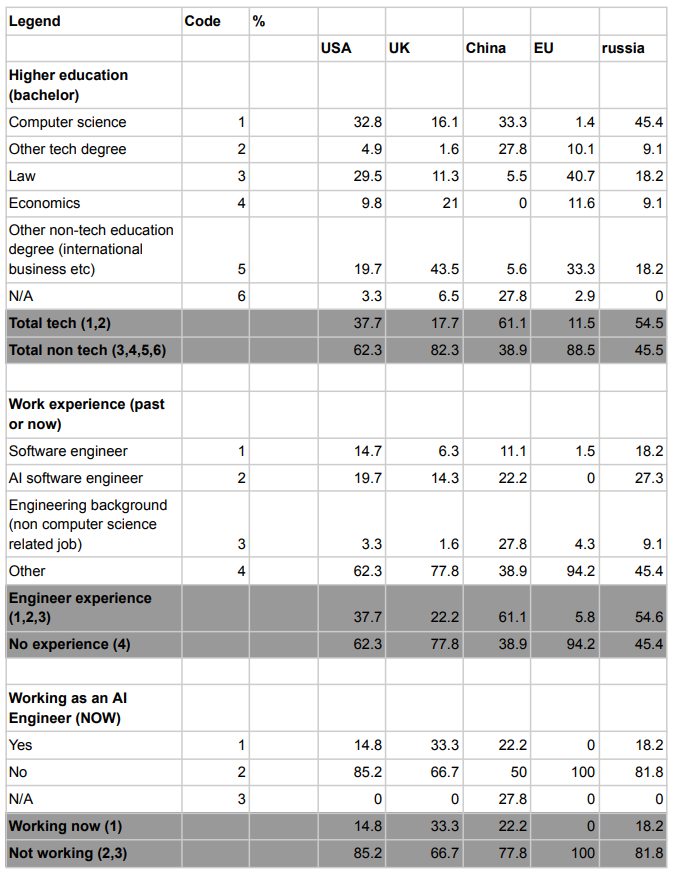
Methodology
This part explains various methodologies that were used in gathering and analysis which are relevant to the research. This secondary research was carried out online in the USA, UK, China, EU and russia. The rationale behind this choice is the sense that information about government bodies and key policymakers in these countries is available freely online. The researcher used a quantitative approach in analysing the data collected, while some conclusions were reached after doing simple mathematical computations such as mean, percentages and tabulations.
USA
Education
According to our analysis, 62 key AI experts work in four US government bodies that deal with AI regulation and policy, including Subcommittee on Privacy, Technology, and the Law, National Security Commission on Artificial Intelligence, National Artificial Intelligence Advisory Committee (NAIAC) and National Artificial Intelligence Initiative Office (NAIIO).

This pie chart visually represents the distribution of higher education degrees among the US AI experts, indicating that the highest proportion (32.8%) have a degree in Computer Science, followed by Law (29.5%) and Other Non-Tech Degrees (19.7%), and Economics (9.8%).
Work experience
As for work experience, most government officials in the field of AI 62.3% have work experience in other fields, followed by AI software engineers (19.7%) and software engineers (14.8%) background.
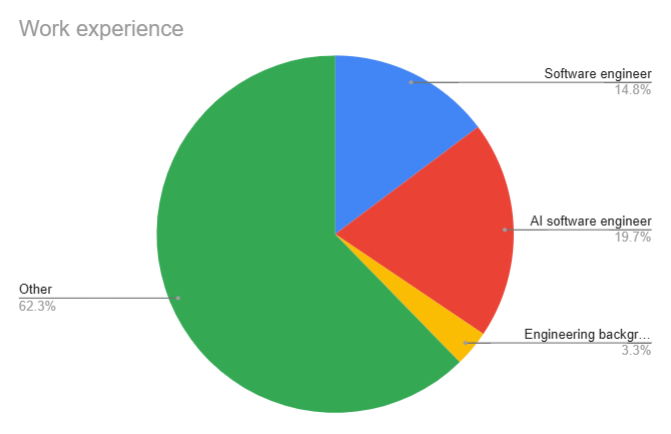
Working as an AI engineer now
Only 14.8% of professionals involved in AI regulation and policy in the USA are working as AI engineers now, while 85.2% occupy other positions.

UK
Education
Other non-tech degree takes a leading place among higher education of 63 officials, working in 5 government bodies (The All-Party Parliamentary Group on Artificial Intelligence, The Department for Science, Innovation and Technology, AI in Weapon Systems Committee, The Centre for Data Ethics and Innovation and AI Council). The majority of government officials are holding other non-tech degrees, followed by Economics (21%) and Computer Science (16.1%).
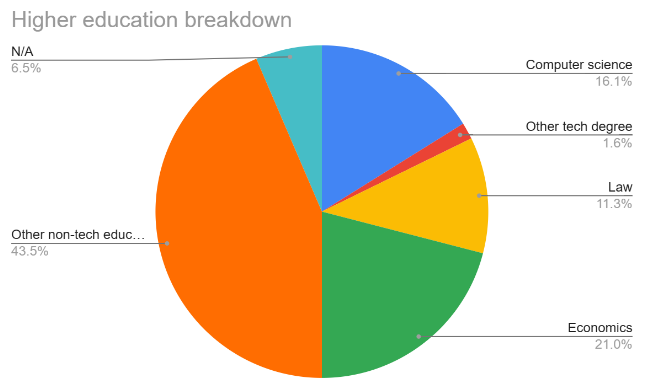
Work experience
There’s a strong correlation between higher education and work experience in the UK, as 77.8% of respondents have other work experience and only 14.3% worked as AI software engineers.
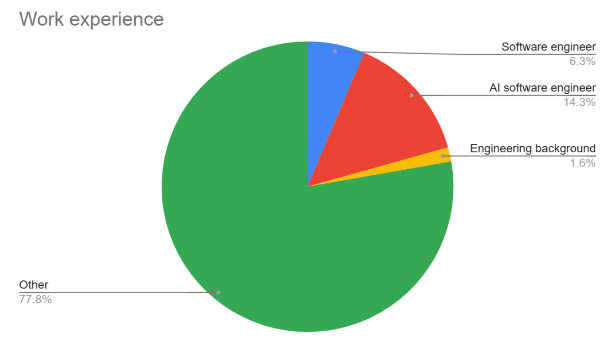
Working as an AI engineer now
At the same time, only 33.3% of experts in the field of artificial intelligence and machine learning are working as AI engineers now, while 66.7% occupy other positions.

China
Education
We analysed profiles of 18 government officials, working in the next four government bodies that regulate AI in China: the Ministry of Science and Technology, the Department of High and New Technology, the Ministry of Industry and Information Technology, the Cyberspace Administration of China and The National New Generation Artificial Intelligence Governance Expert Committee.
33.3% out of 14 AI experts working in the field of AI regulation and policy in China have a computer science degree. That’s the highest result among all countries analysed in our research. It’s followed by other tech degrees (27.8%) and law degrees (5.6%). It’s important to note, that 27.8% of people do not disclose information about their education.

Work experience
Other work experience prevails (38.9%), followed by engineering background (27.8%) and 22.2% for AI software engineers.
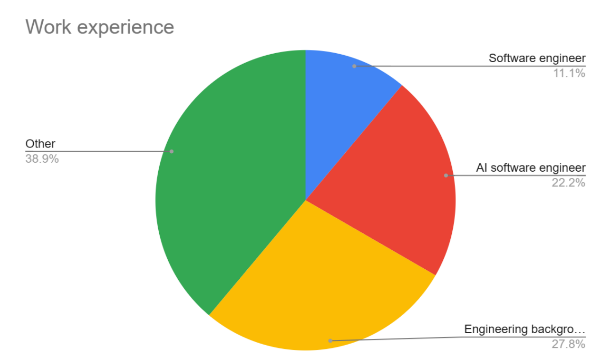
Working as an AI engineer now
Only 22.2% are working as AI engineers right now, compared to 50% who are working in other positions.
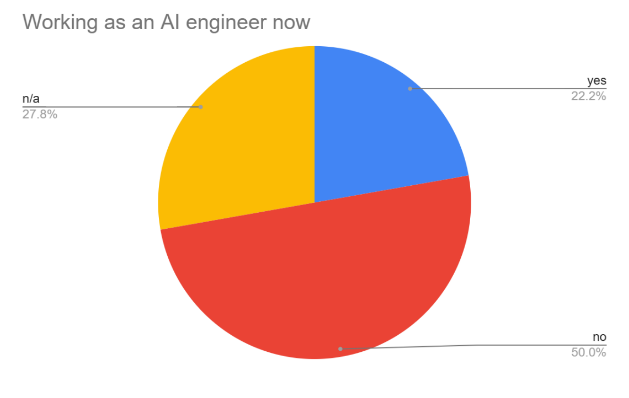
European Union
Education
In the European Union, we analysed profiles of 69 government officials, working in the Special Committee on Artificial Intelligence in a Digital Age. According to the data, 40.6% of professionals got a Law degree, followed by other non-tech degrees (33.3%) and Economics (11.6%).

Work experience
94.2% of respondents have ‘Other’ work experience, with only 4.3% having an engineering background and 1.4% – software engineering.
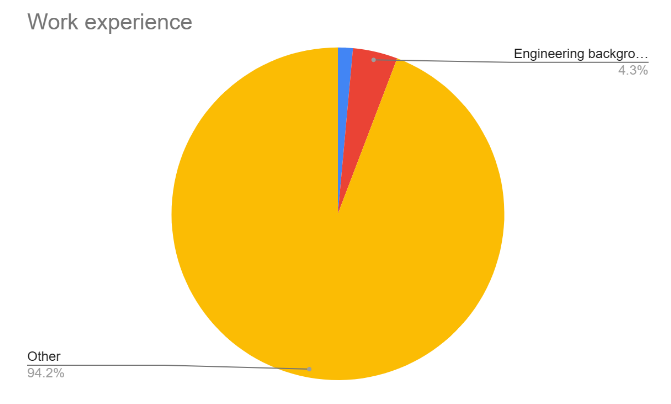
Working as an AI engineer now
100% of AI experts working in the Special Committee on Artificial Intelligence in a Digital Age (AIDA) currently not working as AI engineers.
russia
Education
In russia we analysed profiles of 11 government officials, who are regulating AI in the Ministry of Digital Development, Communications and Mass Media of the Russian Federation and the Commission on Ethics in Artificial Intelligence. According to our analysis, the majority (45.5%) of policymakers received a Computer Science degree, followed by Law (18.2%) and Other Non-Tech Degrees (18.2%).

Work experience
As for work experience, 27.3% of professionals worked as AI software engineers and 18.2% as software engineers. Also, 9.1% have an engineering background. The majority (45.5%) worked in other industries.
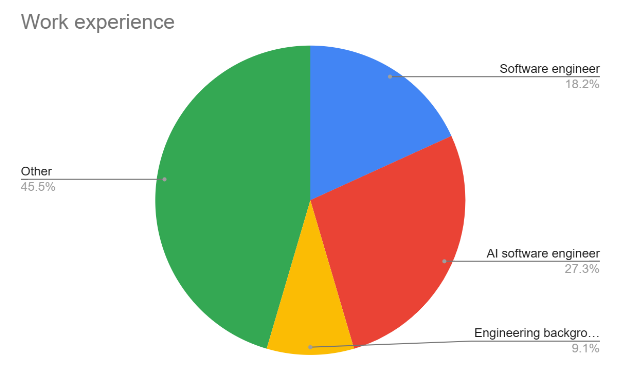
Working as an AI engineer now
81.8% of government officials aren’t working as AI engineers now.
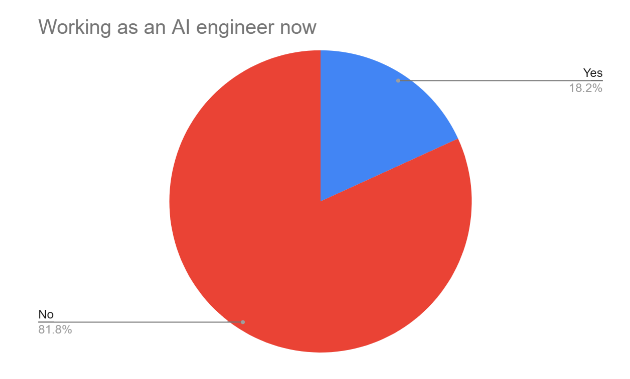
This research study is also available in PDF format.
Best regards,
The WiseRegulation.org team